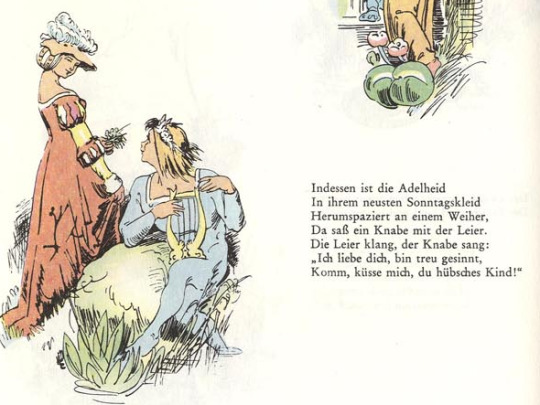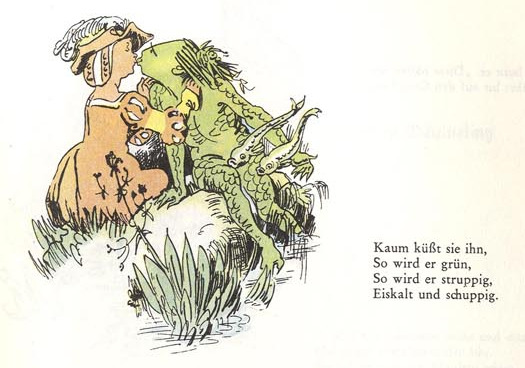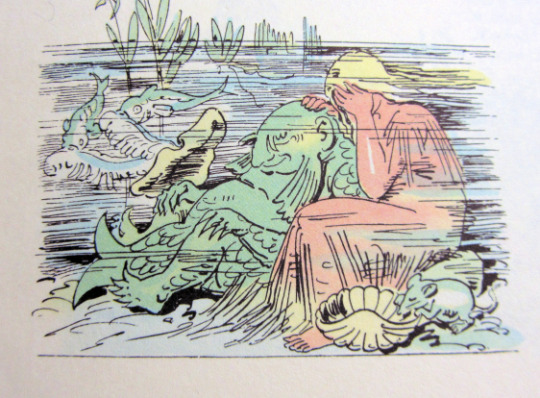#Wilhelm Busch
Text

Wilhelm Busch (German, 1832–1908) - Monkey eating a cherry
90 notes
·
View notes
Photo

Waldrand mit hellem Wiesenweg von Wilhelm Busch (1889, Gemälde)
#kunst#kunstwerk#art#artwork#wilhelm busch#künstler#artist#landschaft#landscape#natur#nature#wald#forest#waldrand#forest edge#bäume#trees#wiesen#meadows#weg#pfad#path#wiesenweg#meadow path#grün#green#flora#pflanzen#plants#gemälde
15 notes
·
View notes
Text
Wer einsam ist, der hat es gut, weil keiner da, der ihm was tut.
Those who are lonely are lucky because there is no one around to harm them.
Wilhelm Busch (1832 – 1908), German poet, illustrator, and painter
64 notes
·
View notes
Text

18.12.2022
Starting this little collection of Wilhelm Busch's most popular works. I'll read them one or two at a time interspesed with English books
9 notes
·
View notes
Text




I had this book as a child that had horrible stories, I guess they were supposed to teach kids to not act like asses.
One of the stories was about two sisters, and I found these images depicting the fate of the mean and vain sister, Adele/Adelheid.
That fishperson haunted my dreams for years ffs. Creepy-ass dude.
#being a fishperson's wife is apparently worthy of a facepalm#goblincore#unintelligible goblin noises#fairy tales#wilhelm busch#max und moritz#the two sisters#Adele is fucked#cryptid#creepy
7 notes
·
View notes
Photo

Was man ernst meint, sagt man am besten im Spaß.
~ Wilhelm Busch
#Wilhelm Busch#alwayssmile#justsmile#smiley#bigsmiles#tumblrboy#tumblrtextpost#lovely#tumblrphotos#mylove#lovelife#skylovers#goodvibes✨#mysmile#tumblrfunny#foodlover
0 notes
Text
Auch uns, in ehren sei's gesagt,
Hat einst der Karneval behagt,
Besonders und zu allermeist In einer Stadt,
die München heißt. Wie reizend fand man dazumal
Ein menschenwarmes Festlokal,
Wie fleißig wurde über nacht
Das Glas gefüllt und leer gemacht,
Und gingen wir im Schnee zuhaus,
War grad die frühe Messe aus,
Dann konnten gleich die frömmsten Fraun
Sich negativ an uns erbaun.
Die Zeit verging, das Alter kam,
Wir wurden sittsam, wurden zahm.
Nun sehn wir zwar noch ziemlich gern
Die Sach uns an, doch nur von fern
(Ein Auge zu, Mundwinkel schief)
Durch's umgekehrte Perspektiv.
Wilhelm Busch (1832 - 1908),
0 notes
Text

„Im Durchschnitt ist man kummervoll und weiß nicht, was man machen soll.“
Wilhelm Busch
0 notes
Text

it´s not over yet......
1 note
·
View note
Text

A small little book from the art exhibition in Berlin, Reinickendorf in 1984
"Circus, Clowns and Mime." with several sketching of W. M. Busch, published by Dr. Pfefferkorn.
Until the 1940s Busch was a part of the art scene of Berlin. Like other artists, he was inspired by the grotesque and shiny world of circus. Especially the figure of the clown seems to fascinate, because of its funtional perfomance in the whole circus world.





What magical attraction!
From young to old, a huge bowl of people!
The cheering crowd, heads looking down and sometimes up.
Mouths that laugh and scream.
Spotlights that seem to shine into the soul.
Everything rolls and moves, the air is conquered acrobatically and grown-ups become children, they were perhaps never allowed to be.
In the gaps, the clown steps into the spotlight, this often misunderstood entity, the own performance between the shows, the circus interface, bridging the shows for coherency.
Music! Roasted Almonds! Where are the elephants?
#art book#illustrated book#sketching and drawing#the world of circus#circus#clown#clown art#art#pantomime#mimodrama#humour#Wilhelm Busch#Busch#Berliner Kunstszene#book cover
0 notes
Text
Das hochfliegende Wort Freiheit bedeutet hienieden, förcht ich, immer weniger, je mehr mans sich ansieht.
The lofty word freedom means less and less down here, I fear, the more you look at it.
Wilhelm Busch (1832 – 1908), German poet and cartoonist
19 notes
·
View notes
Text
2022-12-30 Hannover Wilhelm-Busch-Museum
Ohne viele Worte sende ich ein paar eindrucksvolle Bilder aus dem Museum heute:
Die Austellung der Illustrationen von Ilon Wikland waren eine wundervolle Zeitreise in die eigene Kindheit und Jugend mit Büchern von Astrid Lindgren, die überwiegend von ihr bebildert wurden…

View On WordPress
0 notes
Text
Nights are a little hard for me right now so before bed ill just talk about some of my fav artists



wilhelm m busch
Simple, clean, fluid. Ahhhhhhhhhh so many of his figures are nicely shaped, and his pen feels like it never stops moving. I've learned that a well placed squiggle where clothing fold should be do a pretty good job conveying what u need



Denys wortman
I'm always sad there's not much of his work online. I bought his book a while ago and mWUAH. This guy is a genuis at handling crowd composition. Groups of 2 groups of 5 groups of 10 groups of 50??? Hes done them all. He makes pencil work look so easy. Do u know how many sketchbook drawings I've destroyed because I wanted to try out his shading???
Not much honestly. I gotta practice more
184 notes
·
View notes
Text
Non è difficile diventare padre.
Essere un padre: questo è difficile.
Wilhelm Busch

58 notes
·
View notes
Text
sometimes I love to think of how the Generalfeldmarschalls are just .... human. beneath their military personality and after all the atrocities they may have done. and no, this isn't me justifying the n4zi's horrendous crimes, but sometimes I just think that people who wrote books abt them need to see that side of them too, like okay their military was great but c'mon, let's not forget about their interesting personality!
and some of the facts I often think are:
that my precious baby Model was a member of literary society during his youth excelled in Greek, Latin, and History (and some also say in Poetry — I wonder if he ever wrote a poem).
Von Leeb loved to collect stamps!!! and very fond of his family's chronicles.
There is a story in the Keitel Family that Wilhelm almost went to tears when he gave up his hope to become a farmer in order to stay in the military to support his family.
Von Reichenau was fond of German literature and classical music. He brought to the battlefield in the Polish campaign a small volume of a selection of German poetry.
Von Rundstedt loved detective thriller books but was shy to show it. He regularly read the novel in an open drawer which could be quickly closed whenever anyone came in to see him.
Rommel and Schörner's rivalry. David Irving wrote: "One of Schoerner’s frequent pranks was to plant silver cutlery from the mess in the pockets of guests at formal banquets and watch their embarrassment when the spoons and forks fell out. Rommel, when it happened to him, was not amused. Their rivalry persisted to the end. It was generally friendly, and once, after Schoerner had made a name for ruthlessness bordering on brutality in the Crimea ... Rommel solicitously took him aside and candidly urged him to try a different method."
Von Bock seemed to be very fond of boys —not in the negative way. In Sudetenland, he once "took his twelve-year-old son, dressed in a sailor suit, along in his car "to impress on his son the beauty and exhilaration that lie in soldiering."". In 1940, he sent a postcard to the same son, Dinnies von der Osten. Also, one of Fedi's last wishes to von Manstein was that he should take care of the 16 year old Dinnies after his death, which Erli did until his capitulation. Not that it matters, but Dinnies was not his biological son. It was his second wife's son from her previous marriage. I think it shows how much Fedi cared for the boy. Then, his diary entry on 8/9/39: " ... I was able to present the first Iron Cross of this war to a Private First Class of the 94th Regiment who acted bravely at Graudenz. The young man beamed; too beautiful these lads!". He's just ... adores his troops (and youngest stepson) so much :')
Wolfram von Richthofen always found studying language to be painful. His foreign language grades were either a borderline pass or an “unsatisfactory.” And "he was a somewhat indulgent father. When he returned home during the war years, Jutta would relate some minor misbehavior of the boys and ask that Wolfram, as their father, discipline them. Wolfram’s reply was usually something on the lines of “boys will be boys” and “they’re good kids—let’s give them a break.”". Then, Wolfram once described the Luftwaffe as “the army’s whore”.
Von Manstein's writing is something else. Even if he did lie about the breakout order in Stalingrad, I still enjoyed his memoirs, to be honest. His words are beautiful, the way he tells a story and the allusions — I got the impression that he was a highly educated person by reading Lost Victories.
Also, von Küchler and Busch's rivalry (which was bitter, unlike the Rommel-Schörner's one), which unfortunately I couldn't remember which book explained that and couldn't find it yet :(
Sources:
Hitler's Generals - Edited by Correlli Barnett
Generalfeldmarschall Wilhelm Ritter von Leeb: Tagebuchaufzeichnungen und Lagebeurteilungen aus zwei Weltkriegen
The Memoirs of Field-Marshal Wilhelm Keitel: Chief of the German High Command, 1938-1945 - Edited by Walter Görlitz
Same as 1
Lost Victories by Erich von Manstein
The Trail of The Fox by David Irving
Generalfeldmarschall Fedor von Bock: The War Diary, 1939-1945 || Manstein: Hitler's Greatest General by Melvin Mungo || World War: The Three Vons (Time Magazine, August 18th, 1941
Wolfram von Richthofen Master of The German Air War by James Corum || Stopped at Stalingrad: the Luftwaffe and Hitler's Defeat in The East, 1942-1943 by Prof. Joel Hayward
#don't judge me okay?#this is what happened when you majoring englit but also loves ww2 history#and how fortunate that I love studying about the German side — people will think I support their ideology!#spoiler alert: i don't#yeah nvm#txt dari ro#generalfeldmarschall#heer#3rd reich#ww2
18 notes
·
View notes